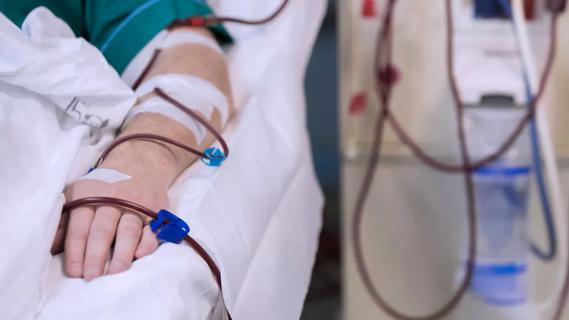Nurses offer tips to conference attendees and presenters

In March, three Wound, Ostomy and Continence (WOC) nurses and their nurse manager from Cleveland Clinic’s Digestive Disease & Surgery Institute attended and presented at the World Council of Enterostomal Therapists (WCET) Congress in Cape Town, South Africa. It was a wonderful opportunity for the nurses, who specialize in caring for patients with abdominal stomas, dermal wounds, complex surgical wounds, pressure ulcers, incontinence and related skin conditions.
Advertisement
Cleveland Clinic is a non-profit academic medical center. Advertising on our site helps support our mission. We do not endorse non-Cleveland Clinic products or services. Policy
“The birthplace of enterostomal therapy is here at Cleveland Clinic,” says Ron Rock, MSN, APRN, ACNS-BC, Nurse Manager and Clinical Nurse Specialist for WOC Nursing. “So when the world comes together and holds the founder, Norma Gill, in such high regard, the focus comes back to Cleveland Clinic and what our nurses do here.”
While Rock and his peers were regarded as leaders at the WCET Congress, they gained just as much as the other attendees by gathering with peers from around the world. “Going to a conference gives you a broader perspective, expands your thoughts on how to do things, helps you appreciate what you have and connects you with other people,” says Linda Coulter, MS, BSN, RN, CWOCN, who gave a podium presentation on Gill’s legacy and a poster presentation on an innovative method for short-term management of a prolapsed stoma.

Left to right: Ron Rock, Rachel Ludwig, Karen O’Brien, Linda Coulter
Karen O’Brien, BSN, RN, CWOCN, and Rachel Ludwig, BSN, RN, CWOCN, were first-time podium presenters at the WCET Congress 2016. They shared a clinical technique developed by Cleveland Clinic’s WOC nursing team to help heal a patient without a bowel who was a transplant candidate. O’Brien felt strongly about sharing their expertise, knowing first-hand how much it can benefit other nurses.
In 2012, O’Brien attended a Wound Ostomy Continence Nursing (WOCN) conference in San Antonio, Texas. During one lecture, she heard about a major medical institution on the east coast that uses a sealant on patients in the neonatal intensive care unit to prevent issues with denuded skin. O’Brien researched the practice, then asked the supplier of the sealant to make a presentation to the WOC nurses. Convinced this was a good solution, O’Brien approached the nurse practitioner in Cleveland Clinic’s NICU about assisting WOC nurses with infant skin care. “They agreed to test this sealant out in all NICU babies with stomas,” says O’Brien. “This will free up our department for scheduled changes and also empower bedside nurses to keep their babies’ skin intact.”
Advertisement
All four Cleveland Clinic nurses heard stories at the WCET Congress 2016 that made them proud to be WOC nurses – and left them in awe of their peers. “The most impressive thing I saw was a nurse from Zimbabwe who had to fashion an ostomy pouch out of an IV bag because she didn’t have supplies,” recalls Rock.
Cleveland Clinic has 22 WOC nurses on its main campus, plus 16 in home care. Last year, they had more than 16,300 visits in inpatient and outpatient settings. As experts in WOC nursing, Rock says they have the responsibility – and privilege – of sharing knowledge at conferences. And he encourages nurses in all specialties to do the same. “Being able to share your knowledge with others – to give them ideas on how to bridge clinical gaps or enhance their practice – is advantageous to patients worldwide,” he says.
Cleveland Clinic’s WOC nurses offer these four tips for presenting at conferences:
Advertisement
Ludwig sums up the event of all four nurses who went to the WCET Congress in South Africa: “I feel truly blessed to have presented at the conference. It was a humbling and wonderful learning experience.”
Advertisement
Advertisement

Nurses play key role in comprehensive lifetime treatment program

Customized bots improve speed, efficiency by streamlining daily clinical, clerical tasks

Nurses play pivotal role in patients’ ability to recover in the comfort of their own homes

New protocol reduces costs, increases patient and caregiver satisfaction

Advocating for patient safety is imperative in fast-paced surgical settings

M-Power program improves the perinatal experience for people who have survived abuse

Advice for those pursuing a WOC nursing career

Veteran nurse shares his experience as a caregiver and community volunteer